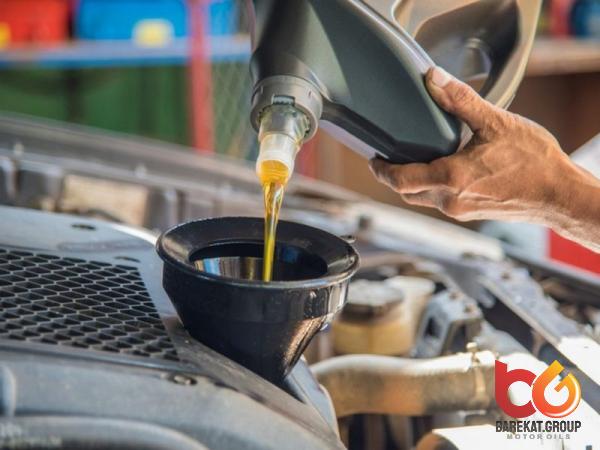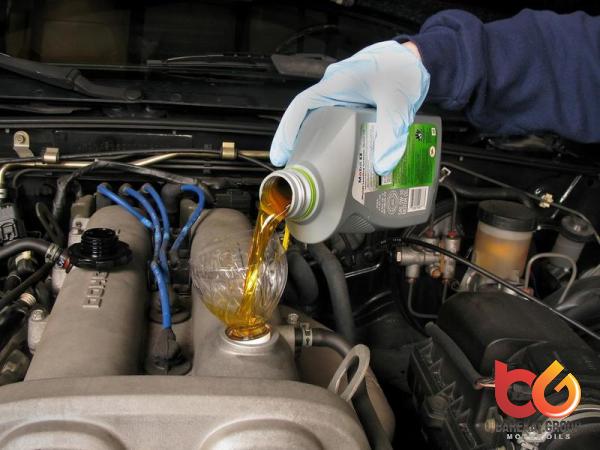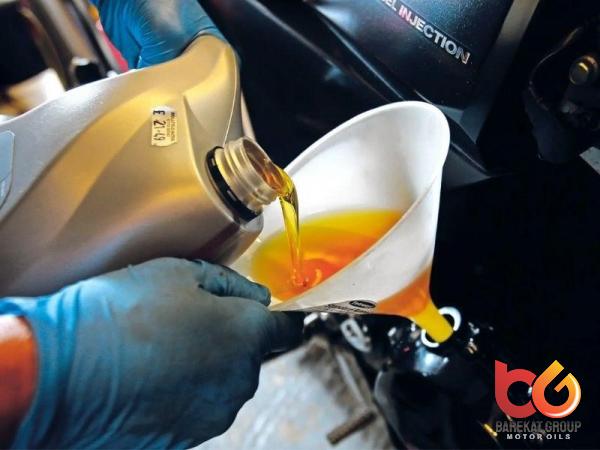Exploring Motor Oil Derivatives: A Comprehensive Overview Motor oil is an essential lubricant that plays a crucial role in ensuring the smooth operation and longevity of combustion engines. Derived from petroleum, this fluid has evolved over the years, giving rise to various motor oil derivatives that cater to specific performance requirements. In this article, we delve into the world of motor oil derivatives, exploring their types, characteristics, applications, and advancements. 1. Conventional Motor Oil: Conventional motor oil is the traditional lubricant used in most engines. It is formulated from crude oil through a refining process that removes impurities and adds necessary additives such as detergents, rust inhibitors, and anti-wear agents. Conventional motor oil offers adequate protection and lubrication under typical driving conditions while being affordable. 2. Synthetic Motor Oil: Synthetic motor oil is created through a highly controlled chemical process, resulting in a customized molecular structure that enhances performance. Unlike conventional oil, synthetic oil offers improved viscosity stability across a wide temperature range, better resistance to oxidation, and enhanced protection against wear. These characteristics make it ideal for high-performance engines and extreme driving conditions. 3. Synthetic Blend Motor Oil: Synthetic blend motor oil combines conventional and synthetic oil to strike a balance between performance and cost. By blending the two types, manufacturers can offer improved protection and viscosity stability while remaining affordable. This makes synthetic blend motor oil a popular choice for those seeking a balance between performance and budget. 4. High Mileage Motor Oil: High mileage motor oil is specifically formulated for vehicles with significant mileage (usually above 75,000 miles). It contains additives that help condition and rejuvenate aging engine seals, preventing leaks and reducing oil consumption. Additionally, high mileage motor oil typically contains anti-wear additives to protect against engine wear and promote continued performance in older engines. 5. Eco-Friendly Motor Oil: With a growing focus on environmental sustainability, eco-friendly motor oil has gained traction.
Engine oil
 This type of oil is often formulated using renewable resources and specialized additives designed to minimize environmental impact. Eco-friendly motor oils meet or exceed industry standards while reducing harmful emissions and promoting fuel economy. 6. Racing Motor Oil: Racing motor oil caters to the high-stress demands of motorsports. It is formulated to withstand extreme engine temperatures, high RPMs, and intense operating conditions. Racing motor oil utilizes advanced additives that provide excellent lubrication, cooling, and wear protection, ensuring maximum performance and engine durability during competitive events. 7. Diesel Motor Oil: Diesel motor oil is specifically designed to meet the unique requirements of diesel engines. Diesel engines operate at high compression ratios and produce more soot and contaminants compared to gasoline engines. Diesel motor oils contain additional detergents and dispersants to control soot and keep internal engine parts clean. They also have anti-wear additives to protect against the increased pressure and shear forces experienced in diesel engines. 8. Specialty Motor Oil Derivatives: Apart from the common motor oil derivatives, there are specialized formulations to cater to specific needs. Examples include high-performance motor oils, engine break-in oils, cold weather motor oils, and gear oil variants for transmissions and differentials. These specialty motor oil derivatives address distinct challenges and requirements for specific types of engines and operating conditions. Advancements and Future Trends: The motor oil industry continues to evolve, driven by advancements in technology, environmental concerns, and changing regulations. Key advancements include: a) Increased Use of Synthetic Oils: With improved synthetic oil technology and growing demand for performance, synthetic oil usage is likely to increase further. b) Bio-based Motor Oils: As sustainability becomes a priority, the development of bio-based motor oils using renewable resources such as vegetable oils or animal fats is gaining momentum. c) Additive Innovations: Ongoing research is focused on creating innovative additives that improve lubricity, reduce friction, enhance fuel efficiency, and offer better environmental compatibility. d) Electric Vehicle Lubricants: As electric vehicles gain popularity, lubricants specialized for electric drivetrains and components, such as battery cooling fluids and greases, are being developed. e) Improved Oil Monitoring and Analysis: Advanced tools and technologies, including oil monitoring systems and real-time analysis techniques, are being developed to optimize oil change intervals, reduce waste, and enhance engine performance.
This type of oil is often formulated using renewable resources and specialized additives designed to minimize environmental impact. Eco-friendly motor oils meet or exceed industry standards while reducing harmful emissions and promoting fuel economy. 6. Racing Motor Oil: Racing motor oil caters to the high-stress demands of motorsports. It is formulated to withstand extreme engine temperatures, high RPMs, and intense operating conditions. Racing motor oil utilizes advanced additives that provide excellent lubrication, cooling, and wear protection, ensuring maximum performance and engine durability during competitive events. 7. Diesel Motor Oil: Diesel motor oil is specifically designed to meet the unique requirements of diesel engines. Diesel engines operate at high compression ratios and produce more soot and contaminants compared to gasoline engines. Diesel motor oils contain additional detergents and dispersants to control soot and keep internal engine parts clean. They also have anti-wear additives to protect against the increased pressure and shear forces experienced in diesel engines. 8. Specialty Motor Oil Derivatives: Apart from the common motor oil derivatives, there are specialized formulations to cater to specific needs. Examples include high-performance motor oils, engine break-in oils, cold weather motor oils, and gear oil variants for transmissions and differentials. These specialty motor oil derivatives address distinct challenges and requirements for specific types of engines and operating conditions. Advancements and Future Trends: The motor oil industry continues to evolve, driven by advancements in technology, environmental concerns, and changing regulations. Key advancements include: a) Increased Use of Synthetic Oils: With improved synthetic oil technology and growing demand for performance, synthetic oil usage is likely to increase further. b) Bio-based Motor Oils: As sustainability becomes a priority, the development of bio-based motor oils using renewable resources such as vegetable oils or animal fats is gaining momentum. c) Additive Innovations: Ongoing research is focused on creating innovative additives that improve lubricity, reduce friction, enhance fuel efficiency, and offer better environmental compatibility. d) Electric Vehicle Lubricants: As electric vehicles gain popularity, lubricants specialized for electric drivetrains and components, such as battery cooling fluids and greases, are being developed. e) Improved Oil Monitoring and Analysis: Advanced tools and technologies, including oil monitoring systems and real-time analysis techniques, are being developed to optimize oil change intervals, reduce waste, and enhance engine performance.
Specifications of Engine oil
 Conclusion: Motor oil derivatives play a crucial role in maximizing engine performance, longevity, and efficiency. Conventional, synthetic, synthetic blend, high mileage, eco-friendly, racing, diesel, and specialty motor oil derivatives cater to specific needs based on engine type, driving conditions, and performance requirements. The constant evolution and advancements in motor oil technology ensure that engines receive optimal lubrication and protection while addressing environmental concerns. As the automotive industry continues to innovate and embrace alternative power sources, lubricant manufacturers are investing in research and development to offer specialized solutions tailored to future demands.1. Market Overview: The motor oil derivatives market is a significant segment of the automotive industry, driven by the demand for efficient engine performance, increased fuel economy, and environmental considerations. The market is highly competitive, with numerous global and regional players offering a wide range of motor oil derivatives. Key market players include major oil companies, lubricant manufacturers, and independent suppliers. Factors such as technological advancements, regulatory standards, and consumer preferences are key drivers shaping the market dynamics. 2. Market Segmentation: The motor oil derivatives market can be segmented based on product type, application, and region. Product types include conventional motor oil, synthetic motor oil, synthetic blend motor oil, high mileage motor oil, eco-friendly motor oil, racing motor oil, diesel motor oil, and specialty motor oil derivatives. On the application front, the market caters to various sectors such as automotive (passenger vehicles, commercial vehicles), industrial machinery, power generation, and marine. 3. Growth Drivers: Several factors contribute to the growth of the motor oil derivatives market. Firstly, the increasing global automotive production and sales drive the demand for motor oil derivatives.irements.
Conclusion: Motor oil derivatives play a crucial role in maximizing engine performance, longevity, and efficiency. Conventional, synthetic, synthetic blend, high mileage, eco-friendly, racing, diesel, and specialty motor oil derivatives cater to specific needs based on engine type, driving conditions, and performance requirements. The constant evolution and advancements in motor oil technology ensure that engines receive optimal lubrication and protection while addressing environmental concerns. As the automotive industry continues to innovate and embrace alternative power sources, lubricant manufacturers are investing in research and development to offer specialized solutions tailored to future demands.1. Market Overview: The motor oil derivatives market is a significant segment of the automotive industry, driven by the demand for efficient engine performance, increased fuel economy, and environmental considerations. The market is highly competitive, with numerous global and regional players offering a wide range of motor oil derivatives. Key market players include major oil companies, lubricant manufacturers, and independent suppliers. Factors such as technological advancements, regulatory standards, and consumer preferences are key drivers shaping the market dynamics. 2. Market Segmentation: The motor oil derivatives market can be segmented based on product type, application, and region. Product types include conventional motor oil, synthetic motor oil, synthetic blend motor oil, high mileage motor oil, eco-friendly motor oil, racing motor oil, diesel motor oil, and specialty motor oil derivatives. On the application front, the market caters to various sectors such as automotive (passenger vehicles, commercial vehicles), industrial machinery, power generation, and marine. 3. Growth Drivers: Several factors contribute to the growth of the motor oil derivatives market. Firstly, the increasing global automotive production and sales drive the demand for motor oil derivatives.irements.
Buy Engine oil
 As vehicle ownership expands, the need for lubricants to ensure optimum engine performance and reliability rises. Additionally, stringent emissions regulations and fuel economy targets propel the demand for advanced motor oil derivatives that can reduce friction and enhance overall efficiency. Moreover, the growing adoption of electric vehicles presents new opportunities for lubricant manufacturers to develop specialized lubricants for electric drivetrain components. 4. Technological Advancements: The motor oil derivatives industry is characterized by continuous technological advancements aimed at improving performance, durability, and environmental impact. The development of new additive packages, friction modifiers, and viscosity modifiers enables the production of motor oil derivatives with enhanced lubrication properties. Advanced manufacturing techniques, such as synthetic base oil production and molecular customization, have revolutionized the industry, allowing for the creation of tailored products to meet specific demands. 5. Environmental Concerns: Environmental sustainability has become a critical consideration in the motor oil derivatives market. The industry is increasingly focused on developing eco-friendly motor oil derivatives that minimize carbon emissions, reduce environmental impact, and meet stringent regulations. Manufacturers are investing in research and development to create bio-based motor oils, utilizing renewable resources to reduce dependence on fossil fuels and lower carbon footprints. Efforts are also being made to improve the recyclability and biodegradability of motor oil derivatives. 6. Strategic Partnerships and Collaborations: Companies in the motor oil derivatives market are actively engaging in strategic partnerships and collaborations to expand their product portfolios, enhance distribution networks, and strengthen their market presence. Joint ventures and collaborations between lubricant manufacturers and vehicle OEMs are a common trend, aimed at co-developing customized lubricants for specific engine models. Additionally, partnerships with academic institutions and research organizations facilitate knowledge exchange and innovation in lubricant technology. 7. Regulatory Landscape: The motor oil derivatives market is heavily regulated to ensure product quality, consumer safety, and environmental compliance. Regulatory bodies, such as the American Petroleum Institute (API) and International Lubricant Standardization and Approval Committee (ILSAC), establish industry standards and specifications for motor oil derivatives.
As vehicle ownership expands, the need for lubricants to ensure optimum engine performance and reliability rises. Additionally, stringent emissions regulations and fuel economy targets propel the demand for advanced motor oil derivatives that can reduce friction and enhance overall efficiency. Moreover, the growing adoption of electric vehicles presents new opportunities for lubricant manufacturers to develop specialized lubricants for electric drivetrain components. 4. Technological Advancements: The motor oil derivatives industry is characterized by continuous technological advancements aimed at improving performance, durability, and environmental impact. The development of new additive packages, friction modifiers, and viscosity modifiers enables the production of motor oil derivatives with enhanced lubrication properties. Advanced manufacturing techniques, such as synthetic base oil production and molecular customization, have revolutionized the industry, allowing for the creation of tailored products to meet specific demands. 5. Environmental Concerns: Environmental sustainability has become a critical consideration in the motor oil derivatives market. The industry is increasingly focused on developing eco-friendly motor oil derivatives that minimize carbon emissions, reduce environmental impact, and meet stringent regulations. Manufacturers are investing in research and development to create bio-based motor oils, utilizing renewable resources to reduce dependence on fossil fuels and lower carbon footprints. Efforts are also being made to improve the recyclability and biodegradability of motor oil derivatives. 6. Strategic Partnerships and Collaborations: Companies in the motor oil derivatives market are actively engaging in strategic partnerships and collaborations to expand their product portfolios, enhance distribution networks, and strengthen their market presence. Joint ventures and collaborations between lubricant manufacturers and vehicle OEMs are a common trend, aimed at co-developing customized lubricants for specific engine models. Additionally, partnerships with academic institutions and research organizations facilitate knowledge exchange and innovation in lubricant technology. 7. Regulatory Landscape: The motor oil derivatives market is heavily regulated to ensure product quality, consumer safety, and environmental compliance. Regulatory bodies, such as the American Petroleum Institute (API) and International Lubricant Standardization and Approval Committee (ILSAC), establish industry standards and specifications for motor oil derivatives.
Engine oil + buy and sell
 Compliance with these standards, along with adherence to regional and national emissions and safety regulations, is essential for companies operating in this market. 8. Distribution Channels: The distribution of motor oil derivatives involves a complex network of channels, including original equipment manufacturers (OEMs), dealerships, retail stores, e-commerce platforms, and independent service centers. OEMs have their branded lubricants that are supplied through authorized dealerships and service centers. Meanwhile, lubricant manufacturers often partner with established distributors and retailers to ensure wide market coverage and accessibility to end consumers. 9. Competitive Landscape: The motor oil derivatives market is highly competitive, with both global and regional players vying for market share. Key players in the market include Exxon Mobil Corporation, Royal Dutch Shell plc, Chevron Corporation, BP plc, Total SE, and Valvoline LLC, among others. These companies invest heavily in research and development, marketing, and brand building to differentiate their products and gain a competitive edge. Mergers and acquisitions are also common in this industry, contributing to market consolidation and expansion. 10. Future Outlook: The motor oil derivatives market is poised for steady growth, driven by technological advancements, stringent regulations, evolving customer preferences, and the shift towards alternative powertrains. As the automotive industry transitions towards electric and hybrid vehicles, lubricant manufacturers must adapt and develop specialized lubricants for these emerging technologies. Additionally, the focus on sustainability and reducing emissions will continue to shape the demand for eco-friendly and bio-based motor oil derivatives. Conclusion: Motor oil derivatives play a vital role in ensuring the performance, durability, and efficiency of combustion engines across a wide range of applications. The market offers a diverse portfolio of motor oil derivatives, catering to specific needs based on engine type, driving conditions, and environmental considerations. Technological advancements, regulatory standards, strategic partnerships, and evolving customer preferences are key factors influencing the market dynamics. As the automotive industry evolves, lubricant manufacturers must stay at the forefront of innovation to meet the demands of new powertrain technologies and increasing sustainability regulatory standards, strategic partnerships, and evolving customer preferences are key factors influencing the market dynamics. As the automotive industry evolves, lubricant manufacturers must stay at the forefront of innovation to meet the demands of new powertrain technologies and increasing sustainability requirements.
Compliance with these standards, along with adherence to regional and national emissions and safety regulations, is essential for companies operating in this market. 8. Distribution Channels: The distribution of motor oil derivatives involves a complex network of channels, including original equipment manufacturers (OEMs), dealerships, retail stores, e-commerce platforms, and independent service centers. OEMs have their branded lubricants that are supplied through authorized dealerships and service centers. Meanwhile, lubricant manufacturers often partner with established distributors and retailers to ensure wide market coverage and accessibility to end consumers. 9. Competitive Landscape: The motor oil derivatives market is highly competitive, with both global and regional players vying for market share. Key players in the market include Exxon Mobil Corporation, Royal Dutch Shell plc, Chevron Corporation, BP plc, Total SE, and Valvoline LLC, among others. These companies invest heavily in research and development, marketing, and brand building to differentiate their products and gain a competitive edge. Mergers and acquisitions are also common in this industry, contributing to market consolidation and expansion. 10. Future Outlook: The motor oil derivatives market is poised for steady growth, driven by technological advancements, stringent regulations, evolving customer preferences, and the shift towards alternative powertrains. As the automotive industry transitions towards electric and hybrid vehicles, lubricant manufacturers must adapt and develop specialized lubricants for these emerging technologies. Additionally, the focus on sustainability and reducing emissions will continue to shape the demand for eco-friendly and bio-based motor oil derivatives. Conclusion: Motor oil derivatives play a vital role in ensuring the performance, durability, and efficiency of combustion engines across a wide range of applications. The market offers a diverse portfolio of motor oil derivatives, catering to specific needs based on engine type, driving conditions, and environmental considerations. Technological advancements, regulatory standards, strategic partnerships, and evolving customer preferences are key factors influencing the market dynamics. As the automotive industry evolves, lubricant manufacturers must stay at the forefront of innovation to meet the demands of new powertrain technologies and increasing sustainability regulatory standards, strategic partnerships, and evolving customer preferences are key factors influencing the market dynamics. As the automotive industry evolves, lubricant manufacturers must stay at the forefront of innovation to meet the demands of new powertrain technologies and increasing sustainability requirements.
Your comment submitted.